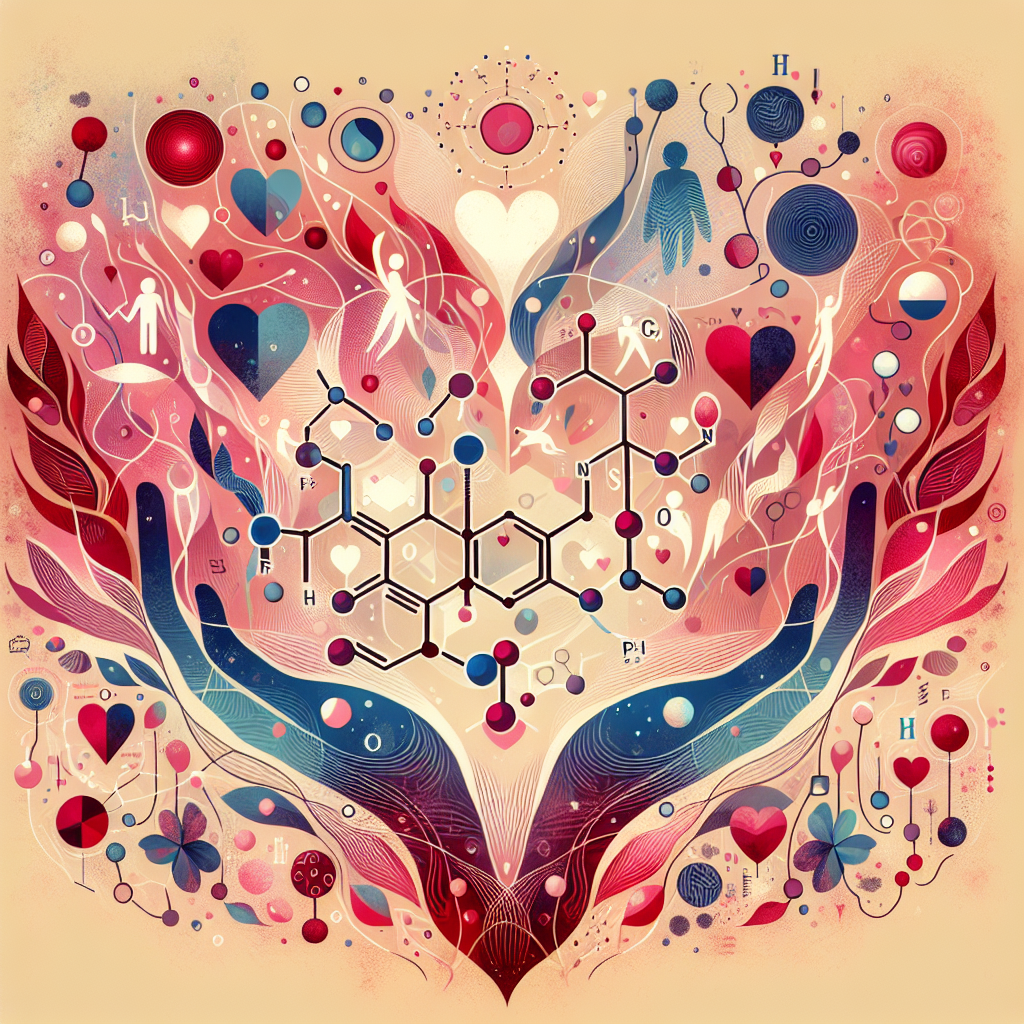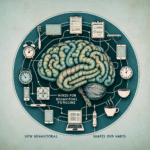
Introduction
Have you ever experienced that warm, fuzzy feeling when you hug a loved one, or the profound connection felt during intimate moments? This enchanting sensation is not solely a product of emotional chemistry—enter oxytocin, famously dubbed "The Love Hormone." This remarkable peptide plays a pivotal role in establishing and maintaining social bonds, fostering affection, and enhancing emotional connections among individuals. In this in-depth article, we will explore The Love Hormone: Oxytocin’s Role in Bonding and Affection from multiple angles, shedding light on its functions, real-world implications, and how we can harness its potential to enrich our relationships.
Oxytocin: Unpacking the Science
What Is Oxytocin?
Oxytocin is a hormone and neurotransmitter primarily produced in the hypothalamus and secreted by the posterior pituitary gland. It is crucial for various physiological functions, including childbirth and lactation. However, its roles extend far beyond reproduction; it is intricately linked to emotional bonding, trust, and social interactions.
Why Is It Called the Love Hormone?
The moniker "The Love Hormone" arises from oxytocin’s significant involvement in bonding, emotional attachment, and acts of empathy. Research indicates that higher levels of oxytocin are correlated with increased feelings of attachment and affection among individuals, making it a central player in our emotional lives.
The Science of Bonding
How Oxytocin Facilitates Bonding
Oxytocin operates via a series of complex biochemical pathways governing our social behaviors. Upon release, it acts on various brain regions, such as the amygdala—which regulates emotions—and the prefrontal cortex, pivotal in social judgment and decision-making. Elevated oxytocin levels often contribute to feelings of warmth, safety, and connection, enabling relationships to flourish.
Case Study: The Power of Oxytocin in Romantic Relationships
In a study conducted by Dr. Ruth Feldman at Bar-Ilan University, couples were examined to understand the influence of oxytocin on bonding. The study revealed that couples who engaged in physical touch, such as hand-holding or hugging, experienced significant increases in oxytocin levels compared to those who did not. As a result, the couples reported elevated levels of intimacy and satisfaction in their relationships, thereby reinforcing The Love Hormone: Oxytocin’s Role in Bonding and Affection.
Table 1: Effects of Oxytocin in Different Relationships
| Relationship Type | Oxytocin Effects | Study Reference |
|---|---|---|
| Parent-Child | Enhanced emotional attachment and trust | UCLA Parenting Study |
| Romantic Partners | Increased intimacy and satisfaction | Bar-Ilan University Study |
| Friendships | Fosters empathy and social connectedness | University of Amsterdam Study |
| Community Bonds | Promotes pro-social behavior and cooperation | University of Cambridge Study |
Oxytocin Beyond Romance
The Role of Oxytocin in Parental Bonds
Oxytocin plays a critical role in the formation of bonds between parents and their children. During childbirth, levels of oxytocin surge, fostering maternal behaviors and enhancing the connection between mother and newborn. This hormonal wave continues during breastfeeding, where skin-to-skin contact further boosts oxytocin levels, thus fortifying this essential bond.
Case Study: Maternal-Oxytocin Connection
A study published in the journal Neuroscience & Biobehavioral Reviews showed that mothers who engaged in consistent physical contact with their infants reported significantly higher oxytocin levels. These mothers also exhibited improved emotional sensitivity and responsiveness, vital components in nurturing strong, healthy parent-child relationships—a fundamental example of The Love Hormone: Oxytocin’s Role in Bonding and Affection.
Oxytocin and Social Relationships
Oxytocin isn’t just about romantic love or parental bonds; it extends into the realm of friendships and community relations. Research conducted at the University of Geneva illustrated that individuals who had higher oxytocin levels exhibited increased trust and cooperation in group settings. This finding underscores how The Love Hormone: Oxytocin’s Role in Bonding and Affection facilitates broader social connections.
The Cultural Context of Oxytocin
Different Cultures, Different Expressions of Affection
While the biochemical underpinnings of oxytocin remain constant, cultural expressions of affection can vary widely. Western cultures often emphasize verbal affirmation and physical touch, while Eastern cultures may prioritize group harmony and social cohesion. Nevertheless, the underlying role of oxytocin in fostering bonding and affection remains universally crucial.
Case Study: Oxytocin Across Cultures
Researchers at the University of Tokyo explored oxytocin’s effects on group dynamics in different cultural contexts. The study revealed that while physical proximity increased oxytocin secretion across all cultures, the resultant behaviors varied. For instance, Americans displayed more overt displays of affection, while Japanese participants used more nuanced, non-verbal cues for bonding, illustrating the diverse ways The Love Hormone: Oxytocin’s Role in Bonding and Affection manifests culturally.
Practical Applications: Enhancing Relationships
Strategies to Boost Oxytocin Levels
There are several ways individuals can increase oxytocin levels naturally and enhance their relationships:
- Physical Touch: Engage in hugging, holding hands, or cuddling to stimulate oxytocin release.
- Eye Contact: Maintain prolonged eye contact, which promotes intimacy and connection.
- Acts of Kindness: Engaging in altruistic acts towards others can enhance oxytocin levels.
- Bonding Activities: Participate in shared experiences, like taking walks or cooking together.
Real-Life Application: Strengthening Relationships with Oxytocin
A couple’s workshop in California incorporated oxytocin-boosting activities, such as workshops on physical connection and communication exercises. Participants noted a marked improvement in relationship satisfaction and emotional intimacy, emphasizing The Love Hormone: Oxytocin’s Role in Bonding and Affection in everyday life.
The Interplay of Oxytocin and Mental Health
Oxytocin’s Impact on Anxiety and Depression
Emerging research indicates that oxytocin may play a role in alleviating symptoms associated with anxiety and depression. Higher levels of oxytocin could potentially foster a sense of safety, thereby easing social anxiety and enhancing emotional well-being.
Case Study: Oxytocin as a Therapeutic Agent
In a study published in the journal Psychoneuroendocrinology, participants administered oxytocin showed significant reductions in social anxiety symptoms. This highlights the potential of oxytocin as a therapeutic agent and its relevance to The Love Hormone: Oxytocin’s Role in Bonding and Affection in mental health.
Challenges and Misconceptions
Clarifying Misunderstandings About Oxytocin
Despite its positive reputation, oxytocin is not a universal solution for enhancing emotional health or relationships. Misconceptions abound, including the belief that higher oxytocin levels always equate to better relationships. In certain cases, excessive oxytocin may even promote in-group bias or exclusionary behaviors.
The Reality of Oxytocin Management
Understanding the complexities of The Love Hormone: Oxytocin’s Role in Bonding and Affection requires a nuanced perspective. Balancing oxytocin levels—via positive social interactions and emotional growth—can help maximize its benefits while mitigating potential drawbacks.
Conclusion
In summary, oxytocin is not just a hormone; it is a pivotal player in the intricate dance of human connection. From romantic partnerships to familial bonds and friendships, The Love Hormone: Oxytocin’s Role in Bonding and Affection enriches our emotional landscape. By understanding and leveraging the profound effects of oxytocin, we can foster deeper connections, enhance our relationships, and ultimately lead more fulfilling lives. Embrace the warmth of this hormone and consider incorporating simple, oxytocin-boosting practices into your daily routines—discover the love that binds us!
FAQs
1. What are the main functions of oxytocin?
Oxytocin primarily facilitates emotional bonding, enhances social interactions, promotes maternal behaviors, and helps with childbirth and lactation.
2. Can I increase my oxytocin levels naturally?
Yes! You can boost oxytocin through physical touch, acts of kindness, eye contact, and participating in meaningful social interactions.
3. Is oxytocin only important in romantic relationships?
No, oxytocin plays a critical role in various types of relationships, including parental, platonic, and communal bonds.
4. Can oxytocin influence mental health?
Emerging research suggests oxytocin may alleviate symptoms of anxiety and depression, enhancing feelings of safety and emotional well-being.
5. Are there any risks associated with oxytocin?
While oxytocin has many benefits, excessively high levels could lead to social biases or promote exclusionary behaviors, highlighting the need for balance.
By delving into The Love Hormone: Oxytocin’s Role in Bonding and Affection, we can unlock the potential to improve our emotional lives and deepen our connections with those we cherish.


















